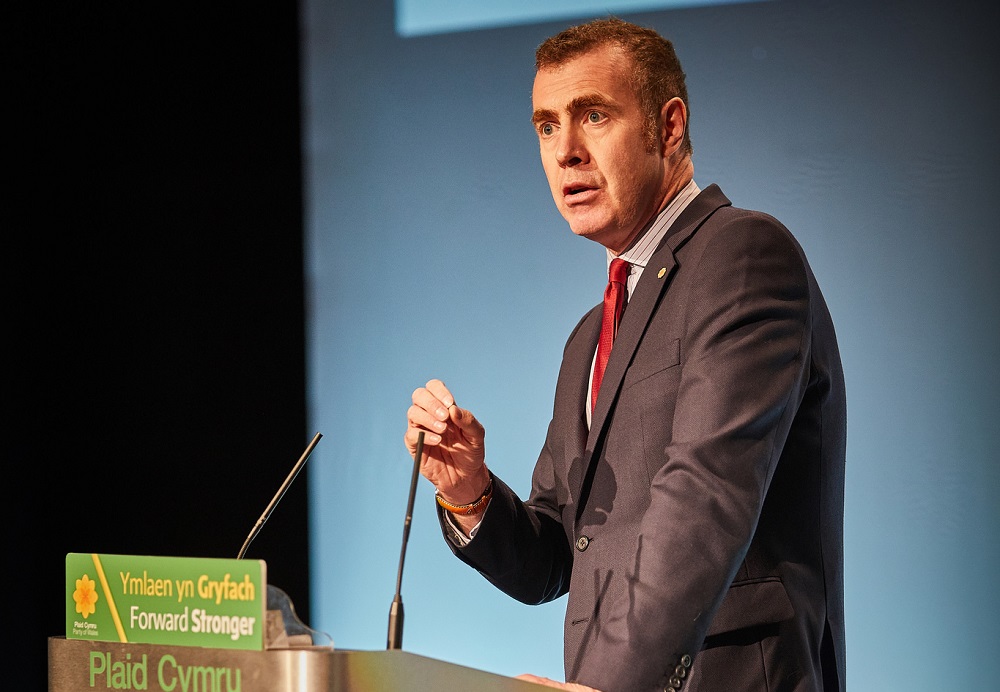Adam must lead Plaid

Simon Brooks
Politics is not about personalities, but ideologies. In particular, it is about applying ideology to a peculiar historical circumstance.
In Wales, over the next 5 to 10 years, these circumstances are likely to entail: the protraction and deepening of the Brexit crisis, political turmoil, a decline in economic performance; and, critically for nationalists, an intensification of the ‘Britishing’ of Wales.
The ‘Britishing’ is not fully understood for while it is currently pushed by the Tory Right, it will also be an inevitable consequence of Corbynism.
Corbyn wants to leave the EU for the same reason as Rees-Mogg. He is a Britisher.
What the Tories seek to achieve via the capitalist integration of Wales into England (‘Severnside’, greater Merseyside etc.), Corbyn would fulfil via a Cromwellian British Republic in which petty distinctions of nationality are swept aside in the name of the universal good of British Man.
In this historical context, one candidate stands out.
Rhun ap Iorwerth is a talented politician but this is not his time.
Rhun is representative of a highly successful strand in small-nation nationalism: the European bourgeoisie. With sensible economic policies and responsible governance, the bourgeoisie look after the nation.
Historically, this approach has done wonders in building up the ‘nation’, from Barcelona to Prague. It has created wealth, and wealthy nations make for independent nations.
However, if married with paternalism or conservatism, it will be the wrong strategy for the next 5-10 years.
Brexit seas will be choppy seas. This is the wrong moment in history for conservatism, and I do not mean conservative in any pejorative sense. It is merely that these are not conservative times.
Leanne Wood is fully of the Left. Her views on social disadvantage, minority rights, and opposition to neo-fascism are correct. Her leadership has been honourable and principled.
However, the horrible reality of Brexit is that the British Left will want the British state to be strengthened.
As the UK becomes an ‘independent’ nation state, the Left will resist predatory international capitalism by buttressing the State in the name of the People.
This process always places assimilatory pressure on national minorities.
Welsh nationalism must be anti-assimilationist to its very core, not as an after-thought but as an immediate priority.
‘Progressive alliances’ which transcend the British and Welsh Left, and reduce the differences between them, increase the likelihood of Wales being subsumed.
Adam Price is the best-placed candidate to lead Plaid Cymru.
His appeal is multifaceted, and answers many of these theoretical problems associated with Leanne and Rhun.
Firstly, he is firmly on the Left, but he understands more fully than Leanne the risks of assimilation.
Plaid’s vote collapsed in the 2017 General Election as a direct result of the party’s unofficial pact with Corbynism.
Plaid voters decided that to get Corbyn they might as well vote Corbyn. Adam would not repeat this mistake.
Secondly, I believe that he understands minorities. Adam is a gay man from a working-class background. He has campaigned for Cymdeithas yr Iaith. He has campaigned for gay rights.
This is crucial because the promotion of justice for minority and minoritised groups is the key contribution Leanne has made to Welsh political practice.
The only ethical justification for Plaid Cymru is that the Welsh nation is a historical, ‘material’ reality which has been ‘minoritised’, and should be emancipated.
But this is the fate of others too – language groups, women, ethnic minorities, sexual minorities, the disabled, non-metropolitan communities, the working-class.
Emancipation of the nation thus means the emancipation of all these groups. But at times, Leanne and others have sought to interpret intersectionality in a way which has not really addressed the problem of difference within a Welsh context.
For example, do men on low incomes in working-class Welsh-speaking communities far from the metropolis really enjoy ‘privilege’?
We know from academic work that the poverty they face is structural and directly connected to their membership of a minoritised language group.
Supporters of Leanne have not thought sufficiently about how theories developed in Seattle or Bristol (where no such group exists) might work in the context of Blaenau Ffestiniog.
Thirdly, Adam understands that an independent Wales has to be a prosperous Wales. The Welsh economy has to be strengthened before Welsh independence. But he does so within the context of wider political and cultural engagement.
He has a plan – ‘Arfor’ – to make Welsh-speaking communities economically and socially more viable.
In this sense, he reaches out to Rhun’s constituency of support and can assuage its fears. But he does so while remaining firmly on the Left.
Building a Welsh economy is not a right-wing argument. Marxists know that the economy is absolutely central.
Unless we sort out the economy, we stand no chance of coming even close in a referendum on independence.
A final point. Like Gramsci, Adam believes in a ‘war of position’. He has direction and strategy. He is a radical. He is not conservative. He wants to destroy the British State but knows that it can only be done by stealth. We need that too.
Support our Nation today
For the price of a cup of coffee a month you can help us create an independent, not-for-profit, national news service for the people of Wales, by the people of Wales.





